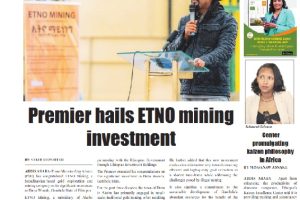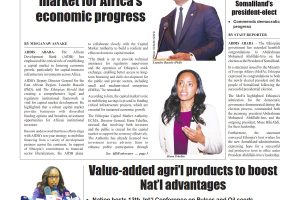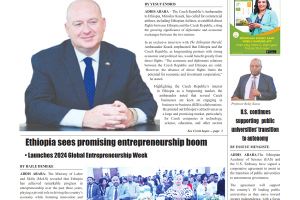
Part II
In spite of the crucial importance of uniformity in IT systems management and utilization for media outlets, major media outlets in Ethiopia do not have a standard IT policy for information exchange and management within their institutions or in their relations with other media houses and stakeholders.
Higher institutes of learning and universities in the country that have opened schools or departments of journalism focus on theories of mass communication and journalism but fail to provide practical field education and training for their students.
In many media centers in the country, reporters are not encouraged to specialize in specific areas of coverage like health, courts, economy, sports, or technology.
Many media outlets in the country, particularly public media houses, have resource centers filled with old materials that are not being used by reporters or editors. Those in the press media do not have standard press kits that could be used to promote Ethiopia and current development programs in the country, which is critical for attracting tourists, researchers, historians, sociologists, anthropologists, and adventurers.
Commercial media outlets in the country are poorly funded and cannot provide decent salary scales for their staff, who seek better payments in other media outlets. The same is true for reporters working in public media houses. There is no staff retention policy in place in most of these media centers.
As a professional with over 40 years of experience in the field, the author wishes to present the following recommendations for improving media management and content development in Ethiopia:
First, efforts that were previously made to develop national media policy and strategy need to be revived in such a way that the media need to be used as a tool of peace and stability in the country and for developing national quality media content.
Second, media companies need to focus on peace communication and peace journalism by developing special programs on peace and reconciliation in the country.
Third, Ethiopian media houses need to develop their own media ethical standards which are based on the psychological makeup of the people by blending it with international media ethical standards and indicators.
Fourth, Ethiopia is surrounded by Arabic and French speaking countries and media outlets that use these languages in their media communication outputs. Universities which train journalists and public relations need to provide trainings in Arabic and French to enable students to adequately communicate in both languages and monitor international media outputs.
Fifth, reporters need to be equipped with modern media digital gadgets which will help them to transmit news right from the sport and submit them to editors with no waste of time until they come to their office. This is no luxury or show of status but for promoting efficiency and quality reporting.
Six, many press agencies are cutting down their pages and columns due to skyrocketing of printing costs and the Ethiopian government can help in easing such burdens that dwarf the progress of print media.
Seventh, media companies should strive to improve their logistics services to be in time for media coverages of important local and international conferences.
Eighth, the author is aware of the existence of a legal media council which has so far remained docile. The leadership and member media outlets need to support the council which can be used as a conveyor belt between the government and media houses as well as for peer review purposes.
Ninth, it would be important to establish a national fund for media development in Ethiopia to assist stronger local media outlets so that they can contribute to media development in the country.
Tenth, media outlets in Ethiopia need to conduct audience survey and analysis at least twice a year so that the media could operate in the context of he needs, interests, values and attitudes of the public at large.
Eleventh, promoting national interest of Ethiopia in a more balanced way by reporting on opinions from all sides is very important with due consideration to the legal protection, safety and security of journalists. Journalists are journalists and not politicians or activists. Balanced reporting, focusing on the national interest of the country.
Twelfth, media outlets may conduct monitoring and evaluation at least twice a year not only on staff performance but also on the general performance of media houses in the country.
It must be noted that Ethiopia’s image at the regional and global level is growing from time to time and media institutions need to be ever more ready to effectively report on the socio-economic and political developments of the country in a professional manner.
Editor’s Note: The views entertained in this article do not necessarily reflect the stance of The Ethiopian Herald
BY SOLOMON DIBABA
THE ETHIOPIAN HERALD THURSDAY 7 NOVEMBER 2024





